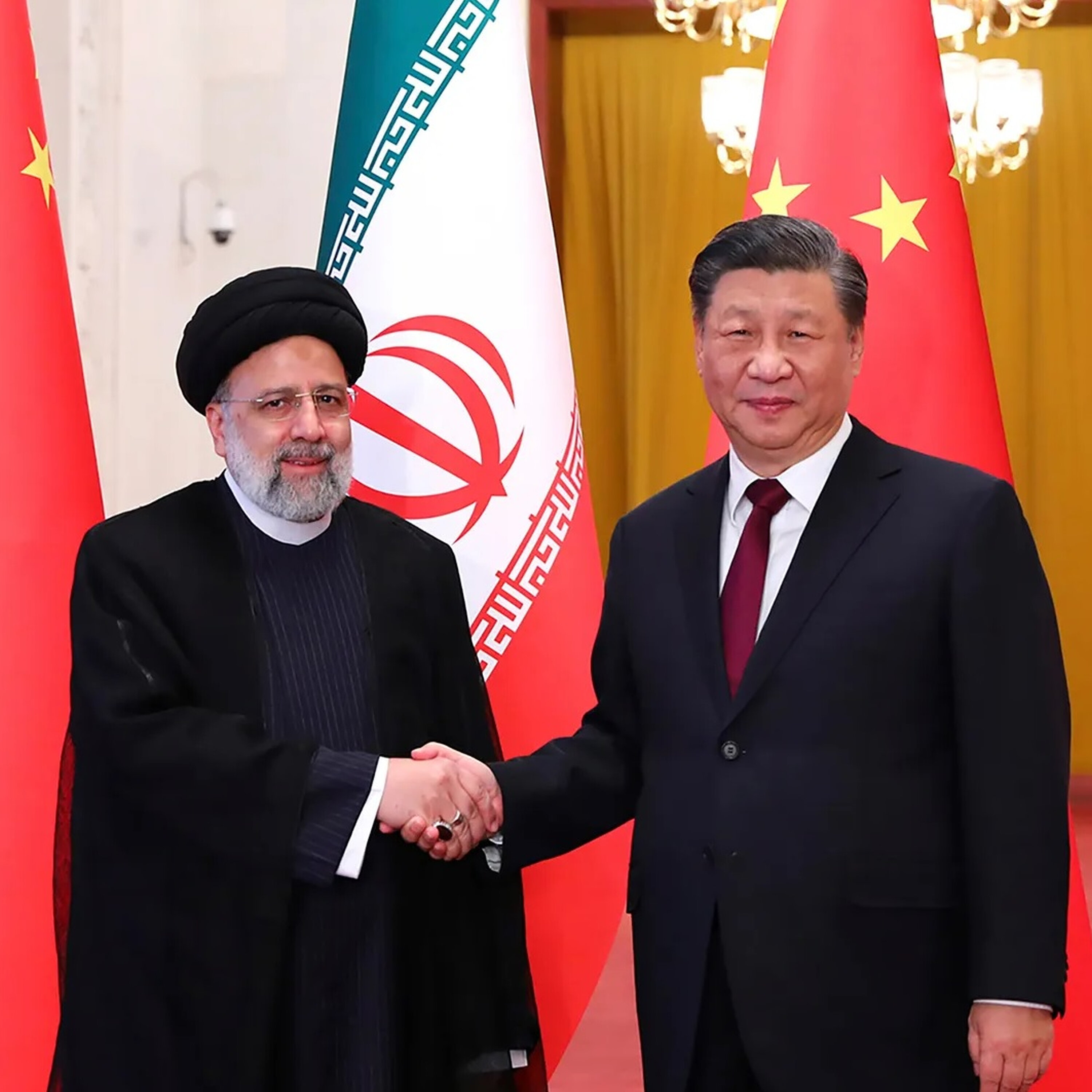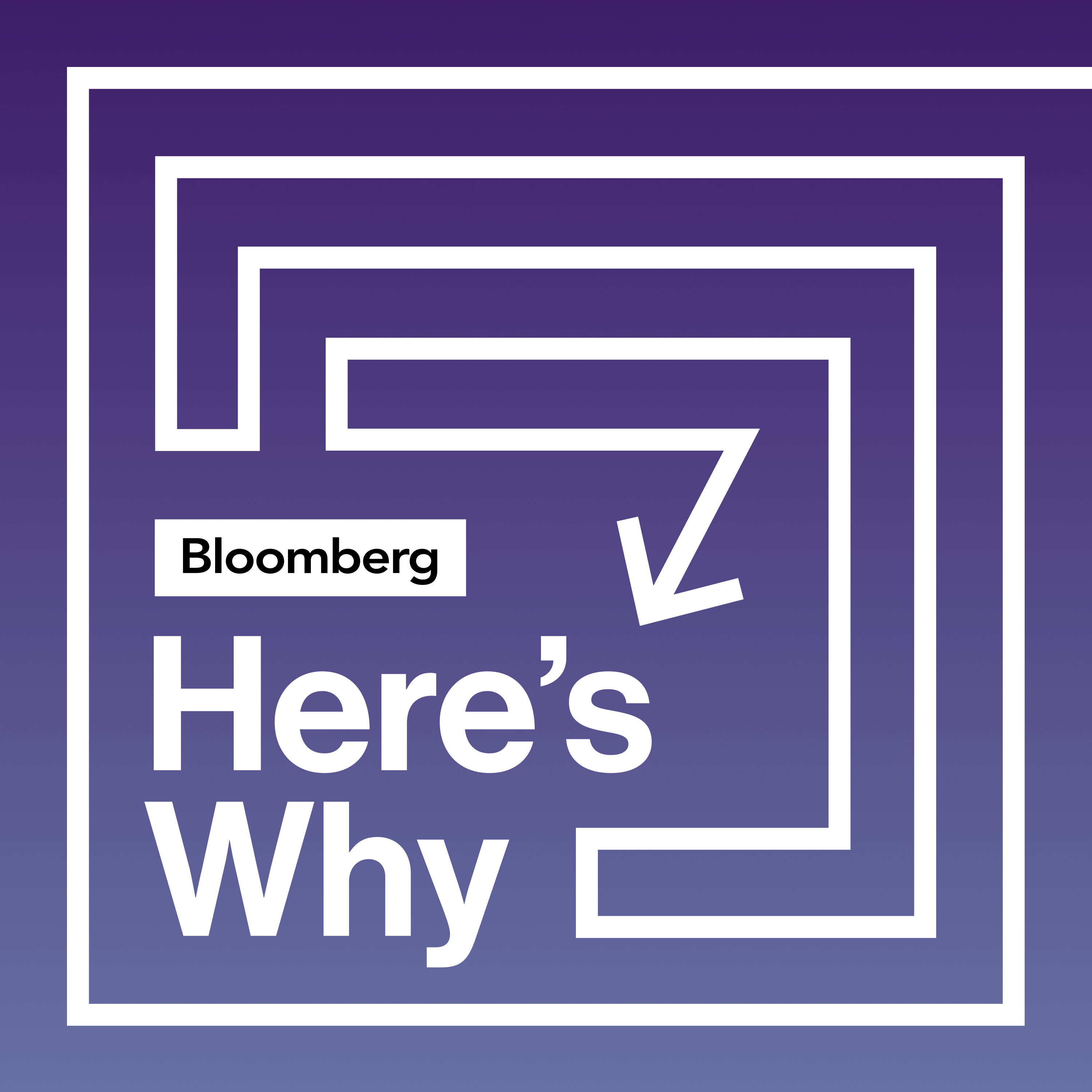
Here’s Why China Is A Quiet Force in the Israel-Iran Conflict

Here's Why
Deep Dive
- China is the largest customer for Persian Gulf oil producers, including Iran and Saudi Arabia.
- Disruptions to oil supply would negatively impact China's economy.
- China's significant role stems from its immense economic ties to the region.
Shownotes Transcript
This is an iHeart Podcast. How can you grow your business from idea to industry leader? Bring your vision to life with smart business buying tools and technology from Amazon Business. From fast, free shipping to in-depth buying insights and automated purchase approvals, they deliver everything you need to achieve your goals. It's not easy to stand out from the crowd. Simplify how you stock up to get ahead. Go to AmazonBusiness.com for support.
Did you know that 92% of U.S. hiring decision-makers expect to face challenges?
Finding qualified candidates this year? The costs of recruiting, advertising, interviewing, and onboarding can add up quickly. But Express Employment Professionals is your hiring solution. Go to expresspros.com today. Express streamlines your hiring process, saving both time and money. Whether you need contract staff or your core team member, visit expresspros.com.
Bloomberg Audio Studios. Podcasts. Radio. News. I'm Stephen Carroll and this is Here's Why, where we take one news story and explain it in just a few minutes with our experts here at Bloomberg. We've taken out top military commanders, senior nuclear scientists, the Islamic regime's most significant enrichment facility and a large portion of its ballistic missile arsenal.
The escalation in the conflict between Iran and Israel has sent shockwaves across the Middle East and through global markets.
While much of the focus has been on the United States' role, there's another economic powerhouse that's watching closely, as Middle East energy expert Ellen Wald explains. China is a really big player. China is basically the largest customer for these Persian Gulf producers. That includes Iran and Saudi Arabia and other ones. And you don't want to kick the nest when it comes to China. China is not going to like it if their ships are disrupted, if their access to oil is disrupted. So here's why China is a
key player in the Israel-Iran conflict. Our Greater China Executive Editor, John Liu, joins us now for more.
John, first of all, how important is Iran to China? China is the world's largest importer of oil. It needs that oil to power its economy. That economy has been weak. It's been struggling with consumer prices. It's been struggling with efficiency and productivity. Higher oil prices is not going to help that. And volatility is
upheaval in the Middle East and around the world is not going to help. It's not going to mean people are going to buy more Chinese exports.
And so much of the oil that China needs comes from the Middle East. And because of American sanctions, China is substantially the biggest buyer of Iranian oil. And so the stakes are high. So a strong economic link then between Iran and China. But what about Beijing's relationship with Israel? How close are those countries? The relationship with Israel is a difficult one at the moment and precarious.
And primarily that is because of how close a relationship Israel has with the United States and the fact that China and the United States are embroiled in this rivalry. And so as part of that rivalry between the US and China, China has wanted to present itself on the global stage as being a champion of the global south.
And the Muslim world is a very important part of that global south that China wants to get on its side. And so whenever there's been a conflict, Israel's conduct in Gaza, in Lebanon, and now with Iran, China has, on the global stage, stood with the Muslim countries as part of this attempt to become this champion of the global south. What?
What has Beijing said about this escalation between Iran and Israel so far? So a day after the bombings in Iran started, Chinese Foreign Minister Wang Yi called both the foreign ministers of Iran and the foreign minister of Israel. He told the Iranian foreign minister that China condemned the attacks, and he told the Israeli foreign minister that China was very opposed to the attacks.
And so a few days after that, President Xi Jinping came out and said that China was deeply worried about the situation in Iran. And in both instances, President Xi and Foreign Minister Wang Yi have come out to say that China wants to play a role in diplomacy, that they do not think diplomacy has been lost the way. They still think diplomacy is a way that the nuclear issue can be resolved.
China has been a mediator in the Middle East before, brokering a deal between Saudi Arabia and Iran in 2023. Is the region a strategic priority for Chinese diplomacy? It is a priority, although I think in this instance, it will be more difficult for China to play the mediator than it was in 2023 with Iran and Saudi Arabia, because China has a relatively good relationship with both
Iran and Saudi Arabia, whereas we were just discussing the relationship with Israel and by extension, the United States has been much more difficult. And so I think there would be much more suspicion on the part of Israel and the United States on how fair and unbiased the mediator China could be in this situation. What should we...
have learned from how China has responded to previous episodes of violence in the Middle East to understand how their response might play out from here? I think the response will be limited to rhetoric. And I think you will hear a lot of rhetoric coming out of Beijing condemning the Israeli attacks, also drawing a line between Israel and the United States. But I think it will stay at rhetoric because
One, China has actually deeper economic ties with Saudi Arabia and the Gulf states. China not only buys energy from those places, but it also invests in those places. You have Chinese companies building factories there. There's a Chinese self-driving company, Pony AI, who's putting driverless vehicles on the roads in those countries. And so that economic relationship is much deeper.
deeper than the one that China has with Iran. And I think also it's important to note that if this conflict results in the United States being embroiled in yet another Middle East conflict,
Beijing's not going to be unhappy about that. What could provoke a greater reaction from China in terms of defending its links to Iran? I think if there was some action directly against the regime, that there was an effort to topple the regime, I think that would be...
very sensitive to China because there is the suspicion in Beijing that ultimately that is what the United States wants for China as well, regime change. And so I think you would see an uptick in the rhetoric. But again, I don't think it would go beyond that. I don't think Beijing is ready to take up arms for Iran.
How does what's happening in the Middle East play into where China's relationship is with the United States at the moment? Will the trade issues become embroiled and influence how China is going to act from here?
I think China will use what's happening with Iran as a propaganda tool. We've seen that with Gaza. We've seen that with Lebanon. I think we will see it again. We will see China try and paint Israel and the United States as being co-conspirators and conducting themselves poorly on the global stage.
I don't think China wants to be embroiled any further than that. And certainly, I don't think China is going to, let's say, offer rare earth magnets if the United States lets up on supporting Israel. I don't think those cards are on the table. John Liu, our Greater China Executive Editor, thank you very much. For more explanations like this from our team of 3,000 journalists and analysts around the world, go to Bloomberg.com slash explainers.
I'm Stephen Carroll. This is Here's Why. I'll be back next week with more. Thanks for listening.
For enterprise organizations, managing all your food needs is a tall order. But with EasyCater, you get a single workplace food vendor with the tools and resources to make it easy, giving teams across your organization an easy way to order from a huge variety of restaurants, all on one platform. All while consolidating your corporate food spend so you can control costs, streamlining billing and payment and simplifying reporting.
EasyCater, your business tool for food. To learn more, visit easycater.com slash podcast. How can you grow your business from idea to industry leader? Bring your vision to life with smart business buying tools and technology from Amazon Business.
From fast, free shipping to in-depth buying insights and automated purchase approvals, they deliver everything you need to achieve your goals. It's not easy to stand out from the crowd. Simplify how you stock up to get ahead. Go to AmazonBusiness.com for support. This is an iHeart Podcast.